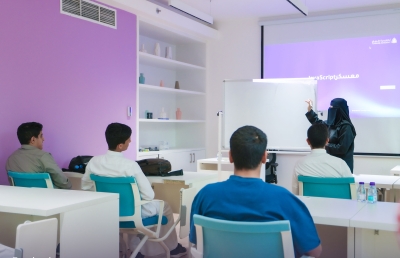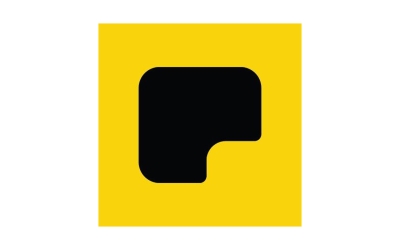
The Oxagon Hackathon is an industrial innovation and entrepreneurship competition announced by NEOM's industrial city, 'Oxagon,' in partnership with the Ministry of Education and 'Blossom' Accelerator. It was launched in Riyadh City, the capital of the Kingdom of Saudi Arabia, on August 3, 2022. Its events were held over three days, starting on October 6, 2022.
Oxagon Hackathon concept
The Oxagon Hackathon fosters collaboration within the startup community in the Kingdom by providing comprehensive support to talented men and women in innovation, technology, and manufacturing. It helps transform their creative ideas into real-world projects while contributing to economic diversification in alignment with Saudi Vision 2030.
Oxagon Hackathon objectives
The Oxagon Hackathon aims to support inclusivity and innovation within the startup communities in the Kingdom, transforming ideas into viable projects. Additionally, it seeks to create a platform that empowers Saudi talents to lead in various sectors, thereby strengthening NEOM’s vision and aspirations in addressing global challenges. It also aims to build a system that accelerates leading ideas, helping them transition from the experimental phase to market entry. Additionally, it seeks to create a community focused on young talents, thinkers, researchers, and creators, to collaborate with each other within an environment that is equipped and prepared for practical experimentation and testing.
Target audience of the Oxagon Hackathon
The Oxagon Hackathon targets several groups, including programmers, developers, designers, students, academics, founders, marketers, entrepreneurs, and teams consisting of two to six members. The competition requires teams to be based in the Kingdom, with a Saudi national as the team leader, or companies recognized by the Ministry of Investment. Participants should be between eighteen and sixty-five years old and possess skills in various fields, such as programming, engineering, finance, design, research, and energy.
Oxagon Hackathon areas
The Oxagon Hackathon focused on technological fields that represent NEOM's industrial ambitions, which are:
- Technology in the service of humanity: This focuses on developing technologies to serve humanity while respecting individual experiences, and enhancing quality of life through personalized, predictive, and autonomous services that align with the environment. It includes robots for general purposes, platform security, advanced augmented reality, big data analytics, and artificial intelligence (AI). - Innovation in the water sector: This aims to develop sustainable solutions addressing scarcity challenges, such as water recycling, advanced desalination methods, and smart water technologies.
- Electrofuels: Exploring technologies that leverage e-fuel solutions to reduce carbon dioxide emissions in the transportation and heating sectors, with the goal of achieving climate neutrality and being fully powered by 100 percent clean energy.
- Green hydrogen: It plays a key role in the renewable energy transition and clean technologies using green hydrogen as the main driver for the future of global decarbonization.
Oxagon Hackathon allowed participants to benefit from its technical capabilities and capacities to address challenges in the sector, including advanced sensor technologies, the Internet of Things (IoT), self-driving cars, robotics, drones, AI, big data analytics, materials science, and nanotechnology.
Judging criteria in the Oxagon Hackathon
To win the hackathon, Oxagon set several criteria that the project must meet. These include clearly defining the problem, proposing an innovative solution, identifying target customers, developing a viable business model, creating a market entry plan, estimating market size, establishing a competitive advantage, developing a prototype, and creating a strong brand that attracts customers. Additionally, the project should include an early-stage validation model to assess the product's effectiveness, a diverse, skilled, and committed team, and a detailed presentation of the proposed solution to one of the four challenges, utilizing advanced technology and explaining it in detail.
The teams that presented the top three ideas were awarded the opportunity to join the 'Oxagon Accelerator,' an intensive twelve-week program held at the end of 2022. Designed to support early-stage startup founders, the program provided them with critical knowledge, experience, and resources, while also facilitating access to capital, investors, and funding. This enabled the founders to establish their companies and transform their ideas into reality within a short timeframe. Meanwhile, the other teams had the opportunity to pitch their projects at the hackathon in front of experts, connect with like-minded individuals, and build a valuable network of relationships.
The winners of the Oxagon Hackathon
On October 9, 2022, the results of the Oxagon Hackathon were announced, with three innovative projects winning. The first winner was the 'SAvetro' project, which focuses on providing future mobility solutions. It was presented by a team from the Manufacturing Club at King Abdulaziz University. The second winner was the '3D & IoT ICS' project, a program designed to plan construction projects using IoT technologies and 3D modeling with drone technology. It was presented by a team from Princess Nourah bint Abdulrahman University. The third winner was the 'BlindLine' project, an intelligent device designed to support learning Braille, presented by a team from Prince Mohammad Bin Fahd University.
Related quizzes
Related articles


